Keywords: Regulation
There are more than 200 results, only the first 200 are displayed here.
-

AUSTRALIA
- Somayra Ismailjee
- 20 May 2016
33 Comments
The irony of trying to negate these stereotypes is that in doing so, we are still cheapening asylum seekers to political tools, stripping them of their humanity and multiplicity. Aiming to counter such rhetoric as Dutton's with stories of high-achieving refugees plays into a toxic game that legitimises the same negative stereotypes by engaging with them. Just as invisibility dehumanises asylum seekers, so does the hypervisibility we attribute to a select few stories.
READ MORE 
-

ARTS AND CULTURE
- Ellena Savage
- 16 May 2016
2 Comments
When my alarm goes off in the morning I reach for my phone: check mail, check ABC, check Twitter. Get up, make filter coffee, pour one. Open my diary and spreadsheet, start working. Pour my second coffee. Eat something, clock calories in. Go for a walk, pick up whatever groceries, clock calories out. Back to work. If whatever I am working on isn't very interesting, this accounting for a day, after day, after day, is fairly sad. But it's also just living a life in 2016.
READ MORE 
-
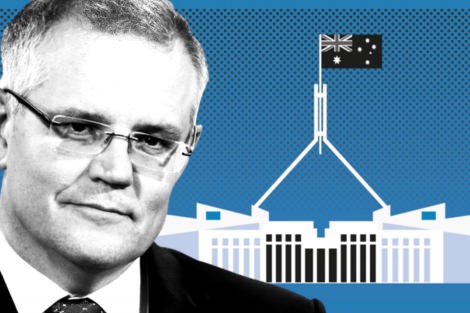
AUSTRALIA
- Andrew Hamilton
- 12 May 2016
5 Comments
It is important constantly to move from the budget to consider the plan it enables. If the budget is for the whole nation, it should look to the good of all, with each person and business having a responsibility for the good of others, particularly the most vulnerable. When budgets are constructed in such a way that the cost of their balancing is gross inequality and the exclusion of vulnerable people from participation in society, they should be rejected. They do not serve but betray the economy.
READ MORE 
-

ENVIRONMENT
- Bronwyn Lay
- 21 April 2016
15 Comments
In the face of the increasing environmental destruction legally occurring within Australia's borders, chasing actors Johnny Depp and Amber Heard for bringing their undeclared dogs into Australia in breach of biosecurity laws comes across as a curated media stunt. Like everywhere in the world, Australian environmental law is at a crossroads. On one hand government regulations that permit violence against habitat increase, and on the other, legal challenges against this destruction rise.
READ MORE 
-
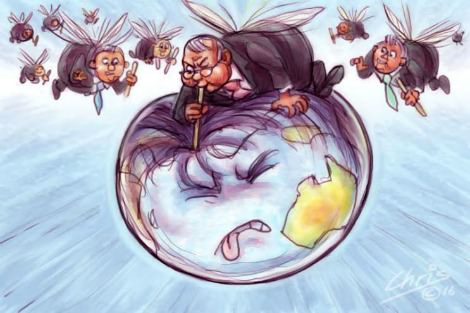
ECONOMICS
- David James
- 18 April 2016
11 Comments
Three finance-related events are currently gaining great attention in the media. One is the so-called Panama Papers. Another is the proposal to have a royal commission into the banks. And a third is the furore over the unaffordability of homes and the debate over negative gearing. On the surface they would seem to be quite separate issues. But all three issues demonstrate yet again that banks are, if not the most malign organisations on the planet, then certainly among the most dangerous.
READ MORE 
-
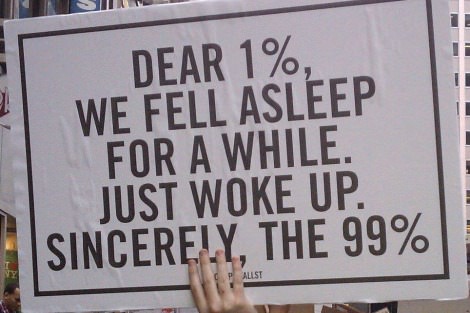
AUSTRALIA
- Fatima Measham
- 18 April 2016
10 Comments
People are sensitised to government-enabled corporate excess and doubt elected officials are capable and willing to serve their interests. The lesson from the 2014 federal budget is that there are non-negotiables around the function of government: to provide the conditions that ensure the flourishing of all citizens. Yet in terms of future-proofing living standards, the Coalition has so far presided over an ideas bust rather than boom, unless boom is the sound of something spontaneously combusting.
READ MORE 
-
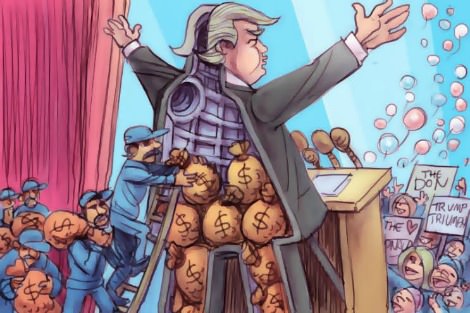
AUSTRALIA
- Justin Glyn
- 15 March 2016
6 Comments
The standard explanation for the rise of 'outsider' figures like Donald Drumpf in the US and Clive Palmer in Australia is that there is disillusion in democratic countries with 'politics as usual'. Neal Gabler has blamed the media for turning politics into celebrity theatre. While he has pinpointed the symptom, I suggest that he has it exactly the wrong way around. It is because politics has already been hollowed out to be a slanging match of personalities rather than ideas that vacuous celebrities can flourish.
READ MORE 
-

AUSTRALIA
- Andrew Hamilton
- 10 March 2016
24 Comments
If we are to make institutions safe for children, we need not only hold to account people who have presided over unsafe places, but also to address a culture that protects silence at each level of organisations, preventing complaints being made and being reported. Clergy and celebrities must not be treated as different from others, entitled to have their bad behaviour ignored. They must be held accountable to the officers and regulations of the organisation in which they work.
READ MORE 
-
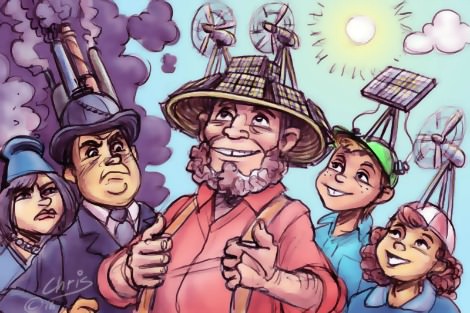
AUSTRALIA
- Ketan Joshi
- 17 February 2016
7 Comments
A government campaign declares 'we've always been good at having ideas. Now we need to get better at innovation: turning ideas into successful products and services.' The message is that we are on the brink of a technological revolution, driven by government. But really we've some way to go. As we have seen with wind turbines, the communities that host new technologies can react with anger and fear. If they are left out of the process, visions of grand, sweeping change can be undermined.
READ MORE 
-

AUSTRALIA
- Andrew Hamilton
- 03 December 2015
15 Comments
A cyclist since my youth, I was intensely annoyed when campaigners first tried to enforce cycle helmets. I loved the wind rushing through my hair, and believed my safety could be left to my responsibility. Others might have wondered if I overestimated my sense of responsibility. It was hardly compatible with the practice of never applying the brakes when going down hills on country roads, or with the view that traffic rules applied only to cars. Later, I came to see that individual freedom must be considered in its context of human relationships.
READ MORE 
-

RELIGION
- Frank Brennan
- 03 December 2015
The consideration of medico-legal problems in the public square of a pluralistic democratic society keeping pace with profound technological change is often marked by simplistic assertions, precluding considerations of comprehensive world views, whether religious or philosophical. It is now commonplace for doctors to be told to leave their consciences at the door, as their patients are consumers and they are suppliers and of course the market decides. Debates about law and policy are often resolved with simplistic assertions about individual rights and autonomy, with little consideration for the public interest, the common good, and the doctor-patient relationship. Even conscience is said to be a matter for contracting out. This evening I ask whether there are more compelling ways to resolve medico-legal dilemmas, while conceding a limited role for law in determining the range of acceptable answers.
READ MORE
-
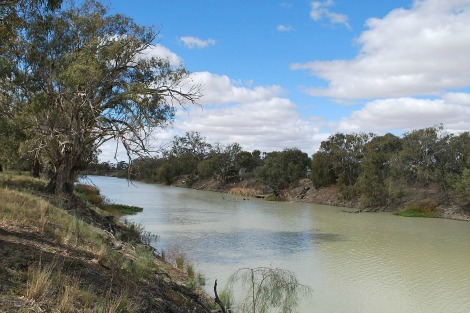
ENVIRONMENT
- Andrew Hamilton
- 12 November 2015
8 Comments
In recent reflection on the future path of Australia the common good has made a welcome return. At the same time the Turnbull Government has transferred responsibility for water resources, including the Murray-Darling Basin, from the Department of the Environment to the Department of Trade. The two things seem to be unrelated. But the concept of the common good has been embodied robustly in the Murray-Darling Basin plan and survives in the midst of continuing conflict.
READ MORE 